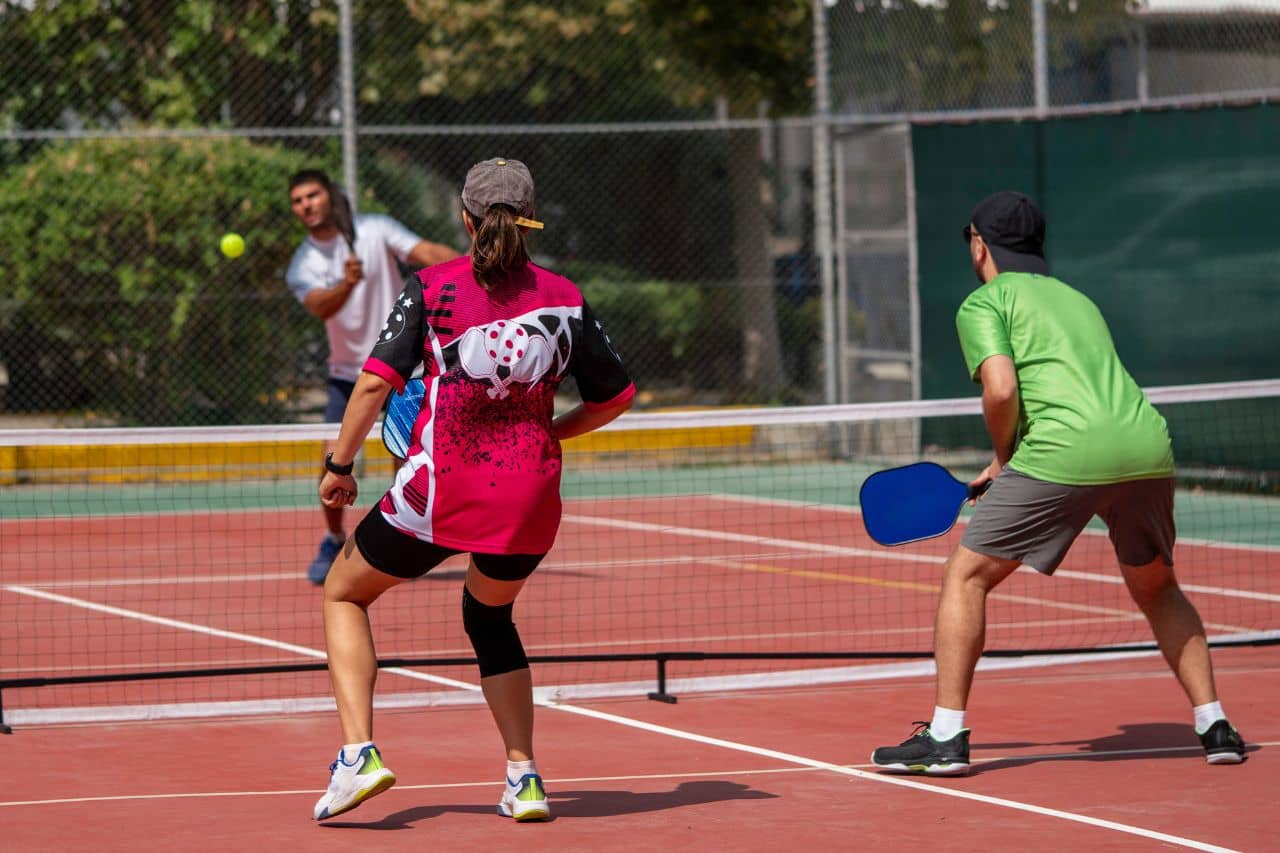Pickleball Pros and Cons for Your Health

Pickleball is a sport with a lot going for it. It’s fun, affordable, and a great way to spend time with others. For those reasons and others, pickleball courts are popping up everywhere, and the number of people who play the game is skyrocketing.
But like any physical activity, pickleball has its pros and cons. If you’re already a pickleball player or are considering trying the sport, it’s wise to consider them.
This article explains how pickleball can improve physical and mental health while also acknowledging the potential downside of being a “pickler.” Read on to learn more.
What Is Pickleball?
Mentions of pickleball in the media, in casual conversation, and elsewhere have soared in recent years. Still, many people don’t know what the game is or how to play it.
Pickleball is a sport that combines elements of tennis, ping pong (table tennis), and badminton. Players use short paddles to hit a perforated plastic ball back and forth over a slightly modified tennis net. The court is like a tennis court, only smaller. (Often, the game is played on a tennis court with modified boundaries.)
While pickleball is a sport and, therefore, a competitive activity, many players enjoy it as much for social interaction as for the outcome of a game.
The Many Benefits of Playing Pickleball
People who play pickleball regularly enjoy several benefits, including:
- Improved heart and lung health: Playing pickleball elevates your heart and breathing rate, which helps keep your heart and lungs working effectively.
- Improved balance: Getting into position to make shots requires moving around the court in various directions and orienting your body properly for swinging the paddle. Those actions help players develop and maintain good balance.
- Better hand-eye coordination: Striking the ball effectively requires good hand-eye coordination, which is beneficial in other activities.
- Improved brain health: Exercise has been shown to improve cognitive activities like processing information and remembering facts.
- Stronger muscles and bones: Regular physical activity tones muscles. It also strengthens bones, helping to prevent osteoporosis.
- Increased social interaction: Pickleball is a sport focused on fun and friendship. Connecting with others can boost your mood and improve your mental health.
Pickleball Risks
Like any physical activity, pickleball poses health risks. Players can injure muscles, tendons, and ligaments in ankles, knees, elbows, shoulders, and other joints. Falls can cause scrapes, abrasions, and even broken bones. Playing pickleball can also worsen existing conditions like arthritis in the knees or hips.
For many people, the benefits of playing pickleball outweigh the risk of pickleball injuries. You can lower your risk by taking precautions, including:
- Stretching before and after playing
- Avoiding “backpedaling” and the associated fall risk
- Standing with your feet apart and knees bent in a “ready position” that’s a good starting point for going after the ball
- Keeping your body hydrated
Talk With Your Doctor About Pickleball
Pickleball is a fun, social sport with minimal injury risk. However, it’s a good idea to talk with your doctor before starting any new physical activity, especially if you have questions about whether pickleball aligns with your health goals.
You can use our online provider directory to find a Baptist Health physician near you.
Next Steps and Helpful Resources
Learn More About Sports Medicine at Baptist Health
10 Best Exercises for Everyone
8 Helpful Stretches When Traveling


.jpg?rev=5ec7fdcba4b24c3bbdb6146dc1d3a1e5)